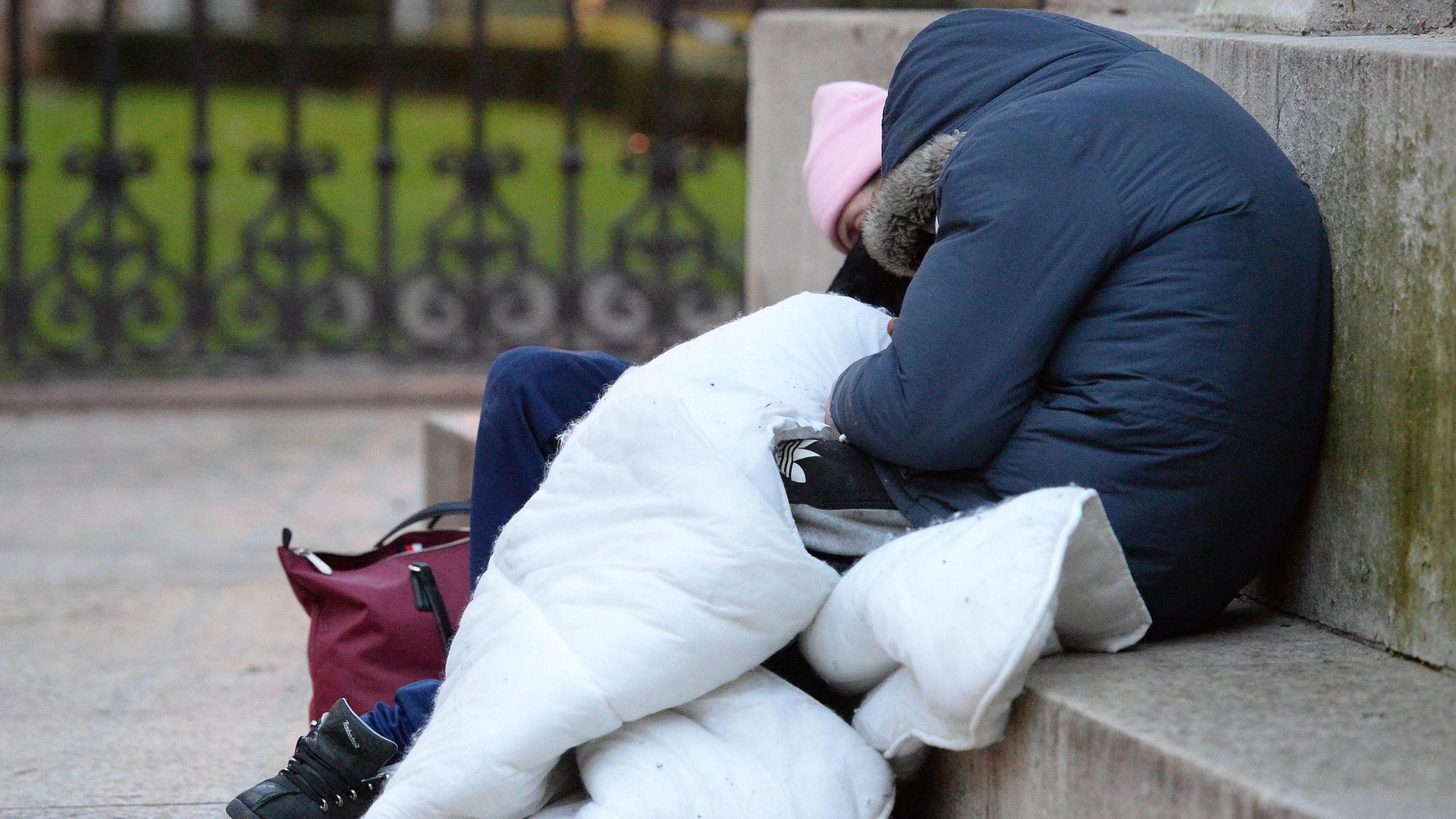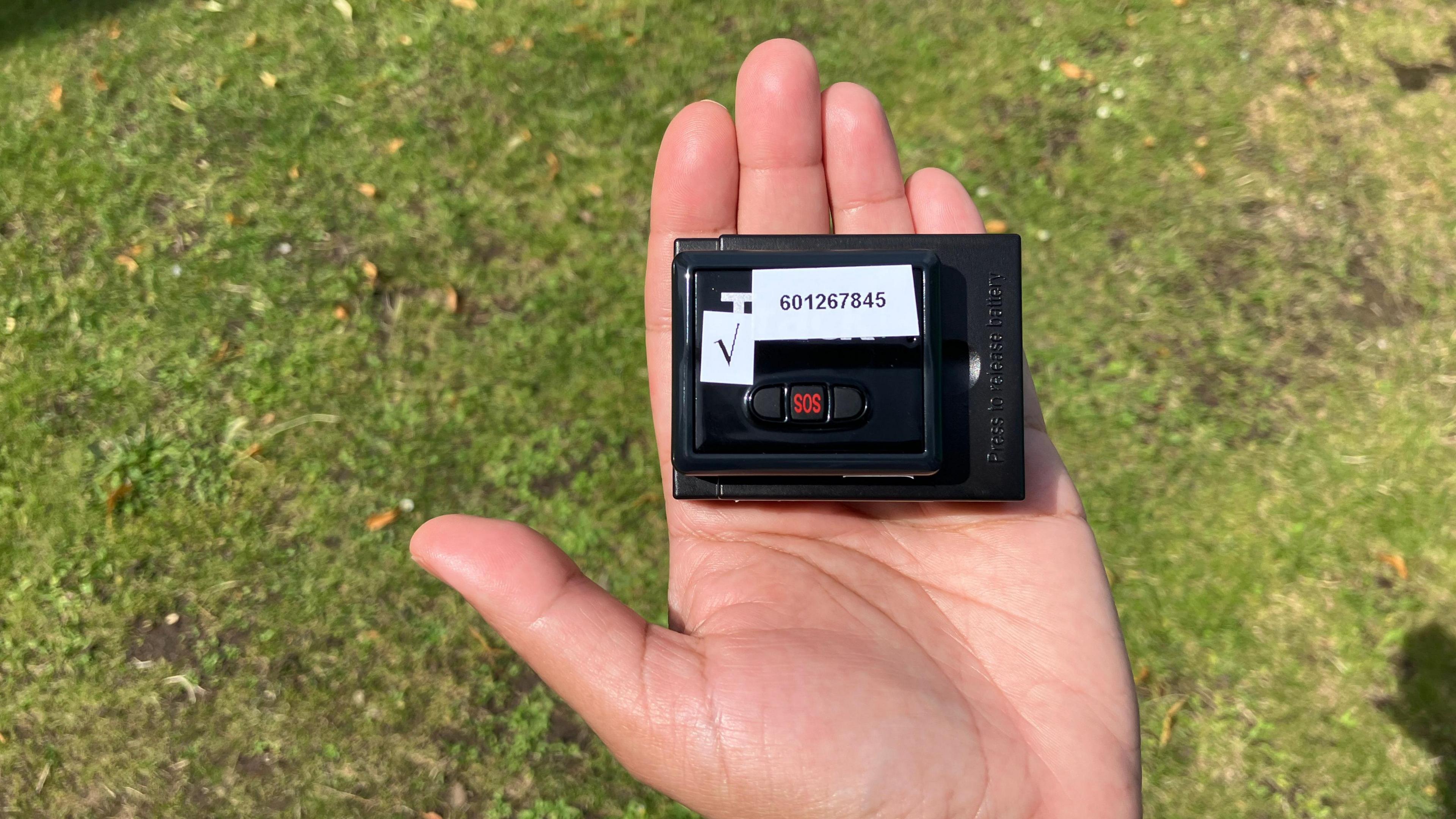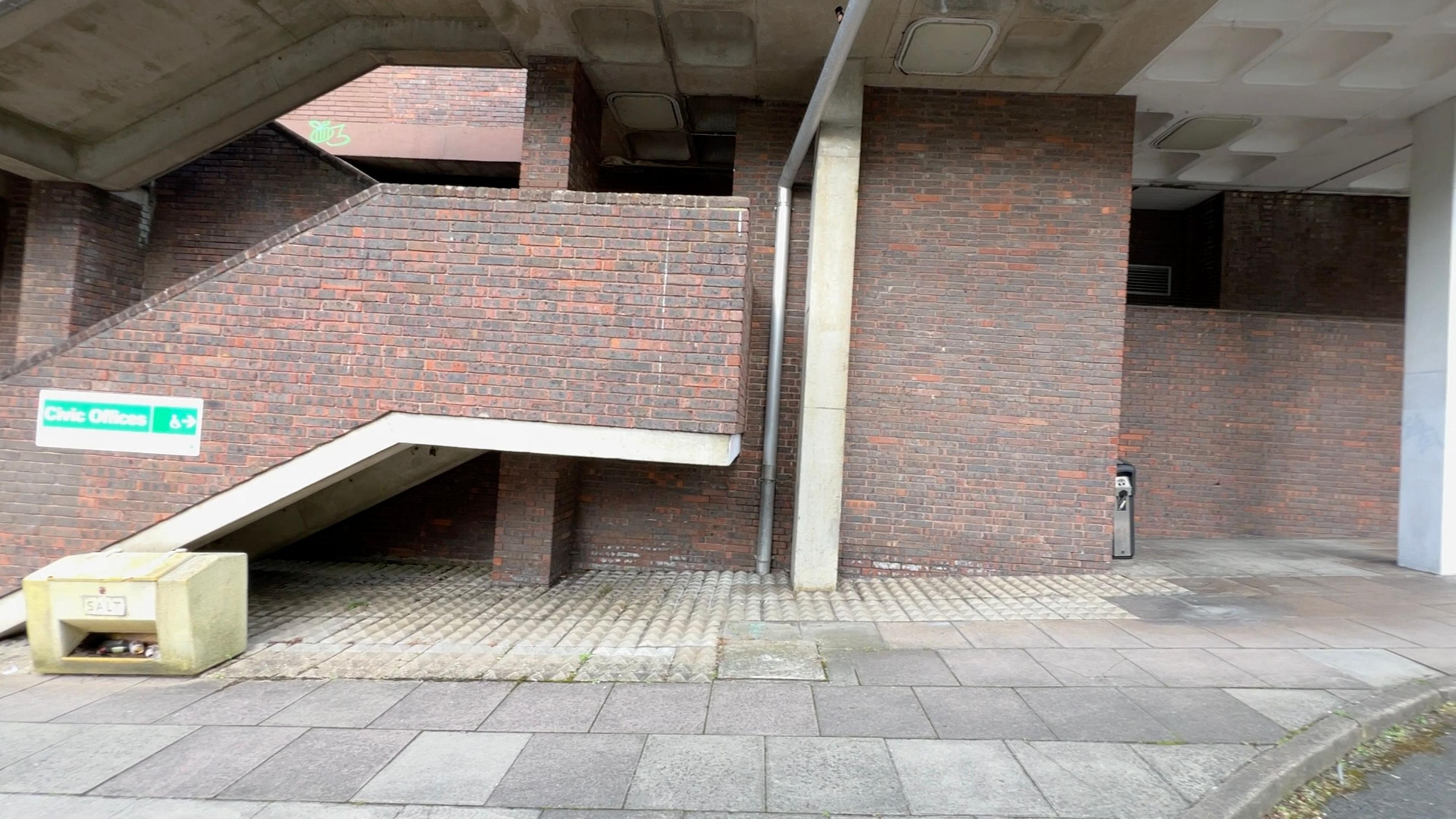Why homeless people are being tracked around London

Rough sleepers were tracked in Sutton
- Published
A study which tracked the movements of homeless people over six months in south London has become the first of its kind to be carried out in the UK.
Eight men and one woman were paid £10 a week to partake in the British Academy-funded research, which was a collaboration between the University of Roehampton and Sutton Night Watch.
Dr Melissa Jogie, who led the research, said: "The trackers were an opportunity... to capture the untold story, a story of mobility."
Andy Fulker, chief executive director of Sutton Night Watch which supports homeless people, said "it's amazing the number of miles they walk" and described the research as a "gamechanger".

The trackers are lightweight and waterproof
The key findings of the report showed homeless people spend hours searching for somewhere safe to sleep, including bushes, benches and even an islet in a nearby river.
Female rough sleepers tended to sleep in high-traffic, brighter areas to increase their personal safety.
A lack of a postal address or ID prevented many rough sleepers from accessing support and health services, researchers found.

Dr Melissa Jogie, from the University of Roehampton, led the research
Between August 2023 and February 2024, the participants in Sutton were each given a tracker weighing just 134g, which was waterproof and had a battery life of up to a week.
They were not tracked in real time, have remained anonymous and results were accessed a week later.
Dr Melissa Jogie from the University of Roehampton, said: "The daily burden of the choices they face are complex and exhausting."
The school where most children are homeless
- Published23 October 2023
One in 50 Londoners homeless and in emergency homes
- Published3 August 2023
One in 50 Londoners homeless and in emergency homes
- Published3 August 2023
Rough sleeping numbers in London have reached a record high and councils in the capital are spending a combined £90m per month on temporary accommodation for homeless people.
Dr Jogie added: "Doing this work has really changed me because I left with the message of understanding anyone can become homeless.
"Life can change very quickly and being able to take this technology, and this innovation, and see people change their opinion - I think there's a lot of hope for what we can do with this type of research.
"This is a societal problem we all need to step up to see that change happen."

The research showed Sutton's Civic Offices were a hotspot for homeless people
Mr Fulker described the research as "a huge learning curve".
"It's made a massive difference. The data from it has given us a better indication of where the rough sleepers are going, where they're spending more time.
"We've been able to give that info to our volunteers so our volunteers can help in different ways."
"We're going to be able to share that information with other organisations that we work with - it will just help everyone to tailor a better service."
Listen to the best of BBC Radio London on Sounds and follow BBC London on Facebook, external, X, external and Instagram, external. Send your story ideas to hello.bbclondon@bbc.co.uk, external